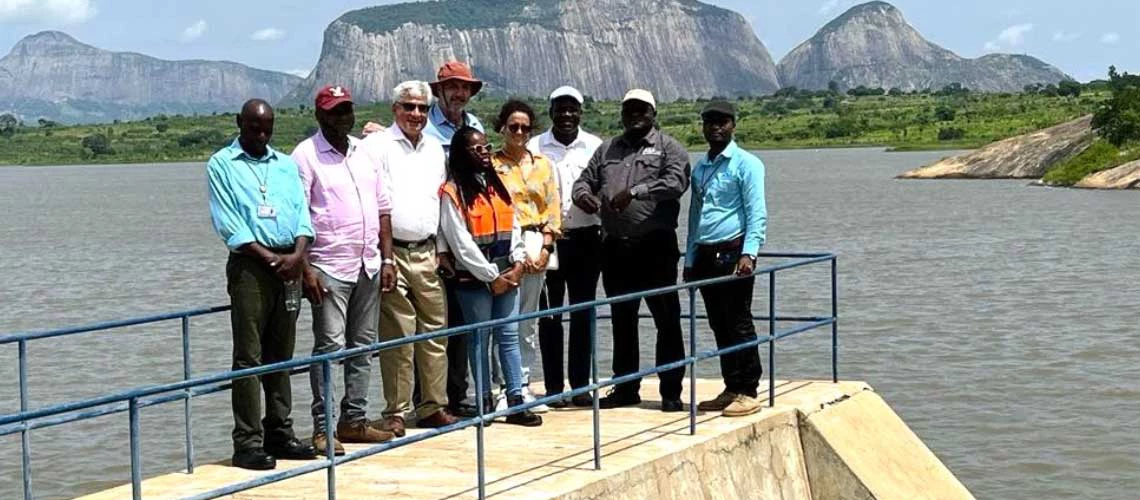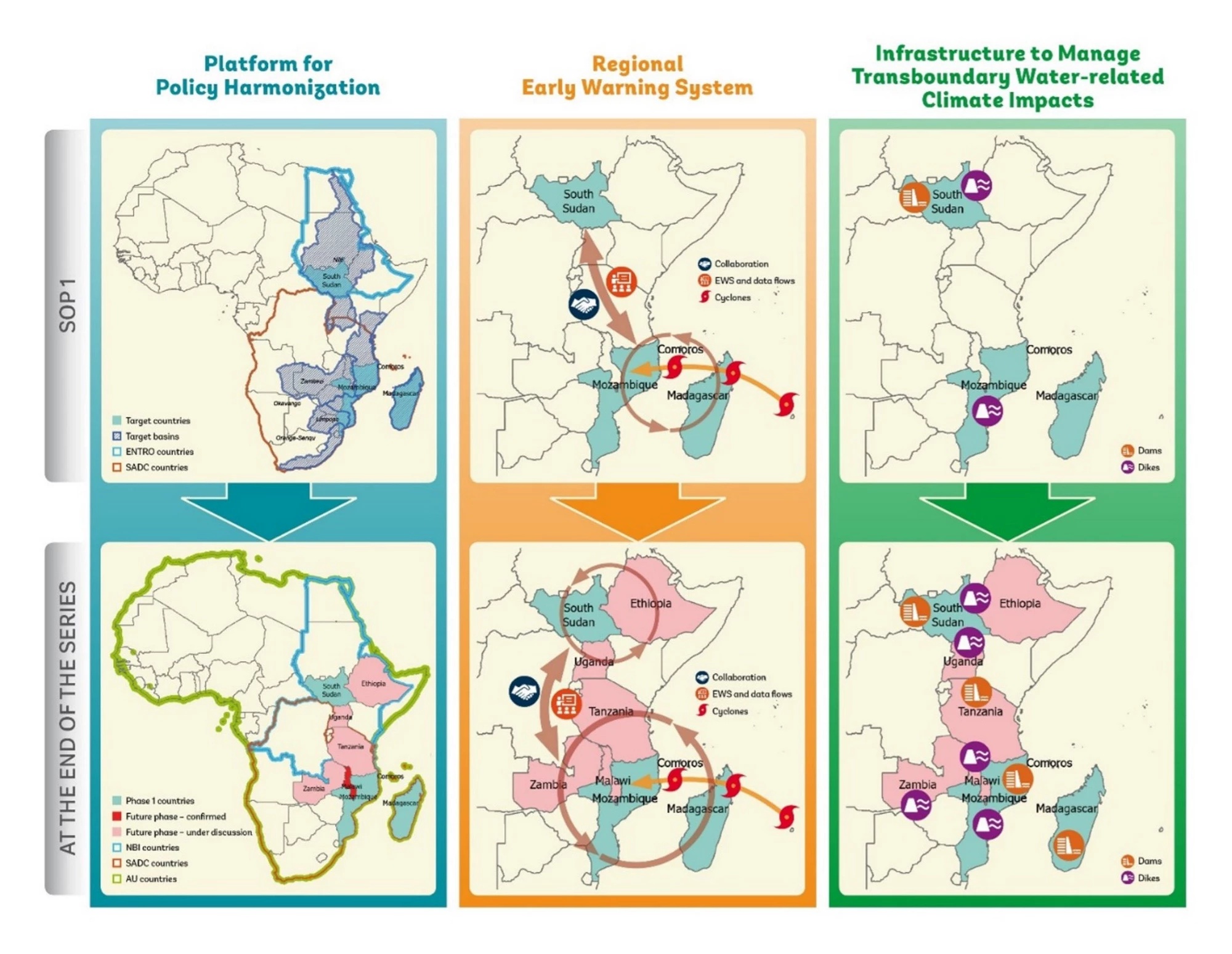 The Regional Climate Resilience Program team exploring solutions to water scarcity in Nampula, Northern Mozambique. Photo: World Bank
The Regional Climate Resilience Program team exploring solutions to water scarcity in Nampula, Northern Mozambique. Photo: World Bank
One of the most important challenges faced by development efforts around the globe, is the challenge of achieving climate resilience−and other development impacts−at scale. But what does this mean, in practice? How can we ‘move the needle’ towards resilience to climate change, and enable countries to effectively tackle the complex challenges of our time that transcend national borders?
We are pleased to share with you today a unique, boldly-designed, multi-sector initiative that has just been launched, the Regional Climate Resilience Program for Eastern and Southern Africa (RCRP) Series of Projects (SOP). This project seeks to address climate change from a new perspective. By tackling water-related, disaster-risk-management, and social protection sector challenges jointly through complementary solutions; by balancing local, national, and regional activities towards a common development objective; and by allowing countries to join over time, building on past experiences, it will create new opportunities for close collaboration and cooperation and the bundling of resources to promote the integration of efforts across different development partners – with the ultimate aim to increase the resilience to climate change of millions of people in the region.
In Eastern and Southern Africa in particular, climate-related disasters have been relentless and extracted a huge toll on socio-economic development gains of the last two decades – despite that, adaptation financing for the region remains minimal. These disasters have become more frequent: In the last 20 years, the frequency of droughts has tripled, and the frequency of floods has increased tenfold. When cyclones or droughts hit the region, cities, which are hubs of economic activity, run out of water; power generation declines, cutting industrial productivity; and rural livelihoods, largely based on subsistence agriculture or wildlife conservation, collapse, causing widespread food insecurity. Managing the impacts of these weather events has become increasingly challenging for the economies of countries in the region, which lose several points of GDP every year, on top of being already hardly hit by other global crises. For example, the 2021 South Sudan floods’ direct economic damage accounted for 13% of the GDP. By 2030, extreme weather events risk pushing more than 20 million additional people below the poverty line, and around 90 million may be forced to migrate. And with all that, climate financing for Africa is minimal compared to the rest of the world, with only 3% of global climate financing going to Africa.
The RCRP is moving beyond business-as-usual via multi-sectoral solutions and enhanced regional coordination to scale up action on climate resilience. Overall, it aims to tackle the urgent need to move from reaction to preparedness for water-related climate shocks. The project will support countries in the region to move towards a new green, inclusive, and resilient growth pathway, harnessing the powerful synergies that exist between water resources, disaster risk management, and social protection, enabling the achievement of climate resilience and development goals.
We recently talked with Ayat Soliman, Director, Strategy and Operations at the World Bank, and she shared her opinion that the RCRP will provide the much-needed platform for coordinated action for regional climate change challenges. It will help with testing and expanding the use of standardized and replicable multi-sectoral approaches that are emerging as “good practices” across countries and sectors.
The RCRP will help mobilize both direct and indirect financing towards more sustainable long-term investments, helping the financing make more impact and bringing in more partners for the effort, and take full advantage of regional synergies where they exist.
The RCRP will be implemented through a series of projects, at least four of which are expected over a period of 10 years, from 2023 to 2033. Our teams will continue working on it to scale up the platform that this project provides and bring much-needed adaptation funding to our client countries. The total cost of the program is expected to be about $2 billion. The first RCRP operation was approved in May 2023 and it includes Mozambique, Madagascar, South Sudan, and Comoros, working closely with two regional organizations: the Southern African Development Community (SADC), and the Eastern Nile Technical Regional Office (ENTRO), part of the Nile Basin Initiative (NBI). Malawi and the African Union will join in December, and additional countries will join next year.
Key expected impacts from the RCRP:
- protecting at least 2 million people in the region from floods and droughts;
- improving access to climate financing to leverage additional investments for climate adaptation;
- mainstreaming climate resilience in water infrastructure planning, and generally in water institutions; and constructing sustainable transformational water infrastructure, including improving their operations and maintenance under a changing climate;
- improving community-level awareness of climate risk and capacity to respond and adaptive social protection.






Join the Conversation